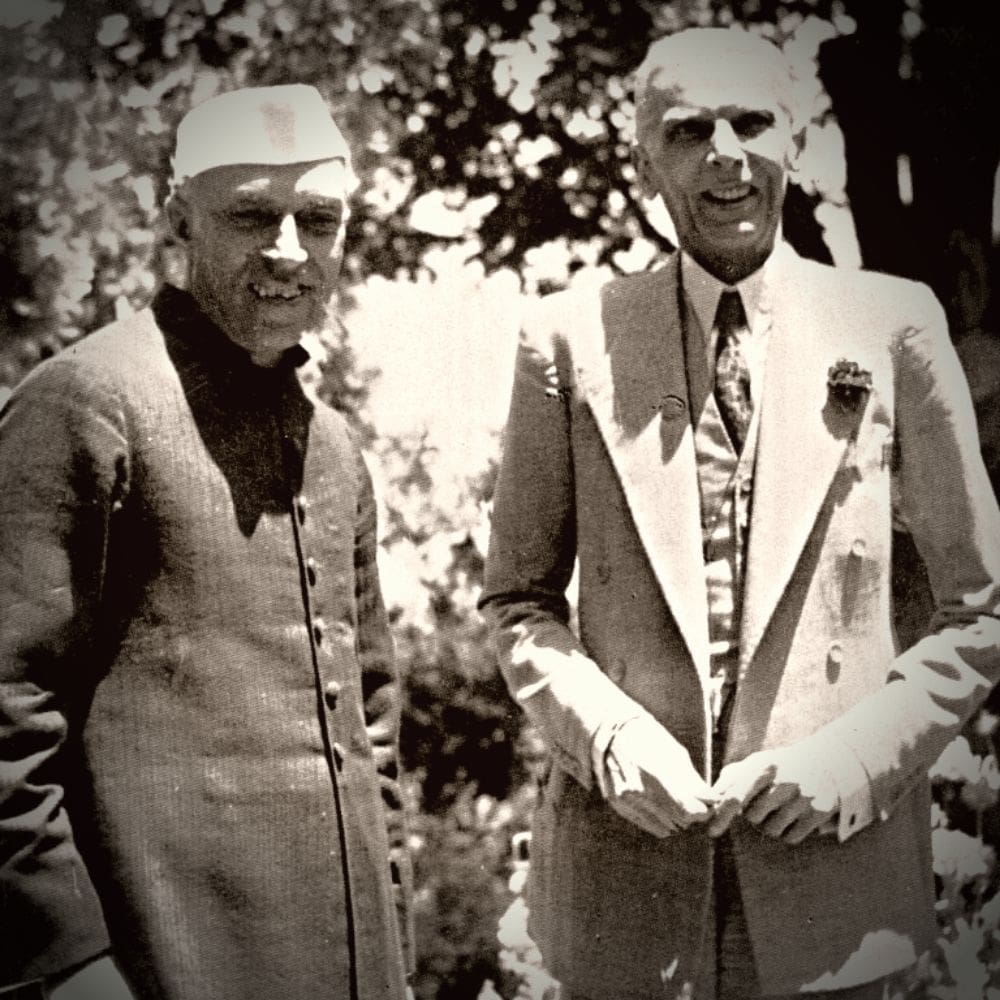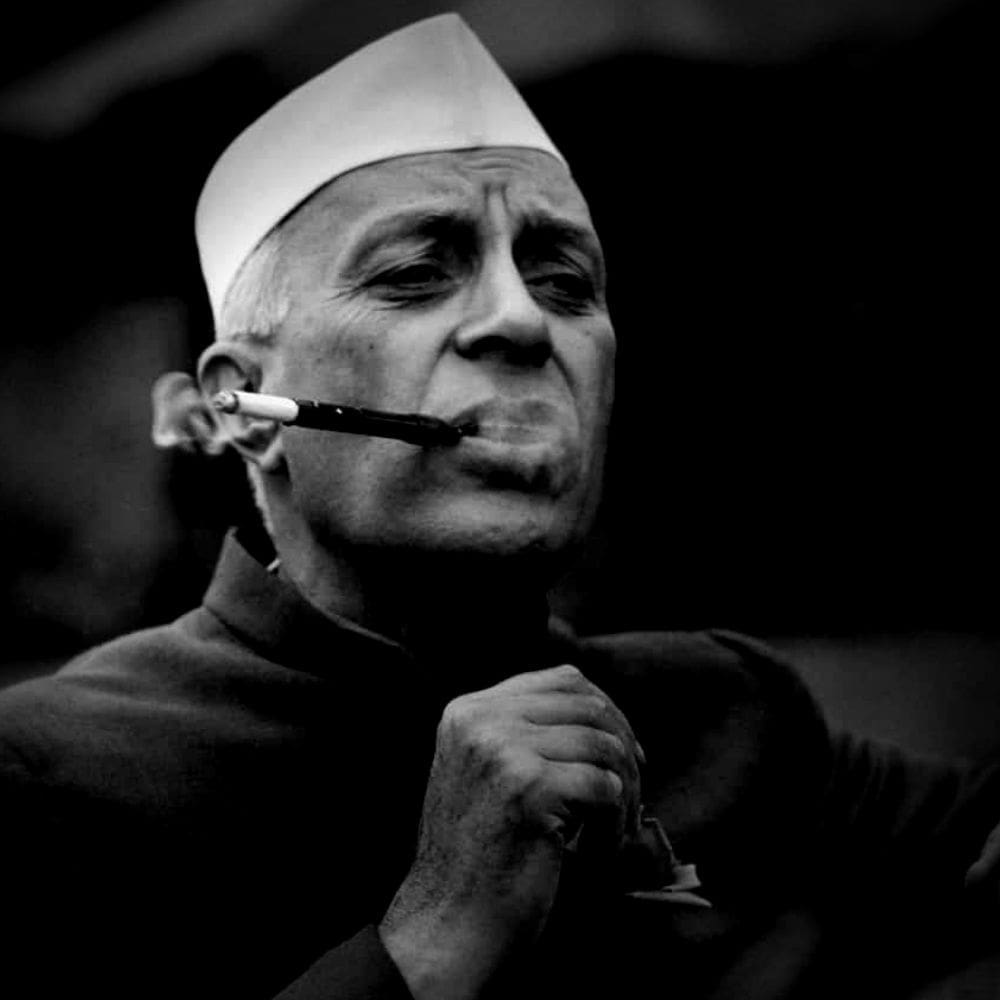SETTING JINNAH ON PATH TO PAKISTAN
Before the 1936-37 provincial elections, the Congress did not expect to get enough seats to form a government on its own in UP. That was because of the other parties in the fray who had strong backing of landlords and influential sections. So as to be able to form a government, it had planned for a suitable coalition with the Muslim League.
So that the Muslim League got enough seats for a coalition to be successful, Rafi Ahmad Kidwai of the Congress (who had been private secretary of Motilal Nehru, and after Motilal’s death, a principal aide of Jawaharlal Nehru) had persuaded, jointly with Nehru, several influential Muslims, like Khaliq-uz-Zaman (third in the AIML hierarchy after Jinnah and Liaqat Ali Khan) and Nawab Mohammad Ismail Khan, who had the potential to win, to fight the elections on behalf of the Muslim League—as Muslims fighting on behalf of the Muslim League had better chances of winning. They fought and won. But, after the elections, when the Congress found it could form the government on its own, without the help of the Muslim League, it began to put unreasonable conditions.
To Jinnah’s proposal of inclusion of two Muslim League Ministers in the UP cabinet, Nehru, who was the Congress President then, and was also looking after the UP affairs, put forth an amazing, arrogant condition: the League legislators must merge with the Congress! Specifically, the terms sought to be imposed, inter alia, by Nehru–Azad were: “The Muslim League group in the UP Legislature shall cease to function as a separate group. The existing members of the Muslim League party in the United Provinces Assembly shall become part of the Congress Party…
The Muslim League Parliamentary Board in the United Provinces will be dissolved, and no candidates will thereafter be set up by the said Board at any by-election…” The above humiliating condition that was the death warrant for the League was naturally rejected by Jinnah. In Bombay, with the Congress Chief minister designate BG Kher willing to induct one Muslim League minister in the cabinet in view of lack of absolute majority of the Congress, and the fact that the Muslim League had done well in Bombay in the Muslim pockets, Jinnah sent a letter in the connection to Gandhi. Gandhi gave a curiously mystical and elliptically negative reply to Jinnah on 22 May 1937: “Mr. Kher has given me your message. I wish I could do something, but I am utterly helpless. My faith in [Hindu-Muslim] unity is as bright as ever; only I see no daylight out of the impenetrable darkness and, in such distress, I cry out to God for light…”
Jinnah then wanted to meet Gandhi; but Gandhi advised him to rather meet Abul Kalam Azad, by whom he said he was guided in such matters. Rebuffed and humiliated Jinnah then decided to show Congress-Nehru Gandhi their place. The incident led other Muslim leaders also to believe that a majority Congress government would always tend to ride rough-shod over the Muslim interests. It is claimed that, thanks to this imbroglio, the badly hurt pride of the Muslims led them to move away from the Congress and quickly gravitate towards the Muslim League, and ultimately to separation.
The incident actually proved a blessing-in-disguise for Jinnah and the Muslim League for they realised their politics needed to be mass-based to counter the Congress. Membership fee for the AIML was dramatically dropped to just two-annas. There was a huge move to increase membership among the Muslim masses, and it paid rich dividends: the membership dramatically rose from a few thousand to well over half a million! Jinnah told his followers that he had done enough of begging the Congress in the past; he would see to it now that the Congress begged of him.
The humiliated Muslim League aspirants Khaliq-uz-Zaman and Nawab Mohammad Ismail Khan, whose ambitions were thwarted by the Congress and Nehru, thereafter became the pillars of Muslim reaction and played a critical role in swinging the Muslim opinion in favour of partition and Pakistan. The British were only too glad at the development. The Secretary of State Birkenhead wrote to the Viceroy: “I have placed my highest and most permanent hopes in the eternity of the communal situation.” It was unwise of the Congress and Nehru not to show a little generosity towards the League. Reportedly, Sardar Patel and GB Pant were willing for a coalition with the Muslim League as per the pre-election understanding, but Nehru, in his “wisdom” and hubris, decided to act arrogant, and led the way for the ultimate parting of ways with Jinnah and the Muslim League, and for Partition and Pakistan—Nehru was the Congress President in 1936 and 1937.
Jinnah’s bitter reaction on 26 July 1937 to Nehru’s unjust act was: “What can I say to the busybody President [Nehru] of the Congress? He [Nehru] seems to carry the responsibility of the whole world on his shoulders and must poke his nose into everything except minding his own business.” The fissure caused by Nehru’s impetuosity was never healed. There is an opinion that had the Congress been accommodating towards the AIML post-1937 elections, AIML may not have hurtled forward towards Partition and Pakistan.
Besides, it would have prevented counterfactual speculations. Wrote Maulana Azad: “...I have nevertheless to say with regret that this was not the first time that he [Nehru] did immense harm to the national cause. He had committed an almost equal blunder in 1937 when the first elections were held under the Government of India Act [of 1935]“ Jawaharlal’s action gave the Muslim League in the UP a new lease of life.
All students of Indian politics know that it was from the UP that the League was reorganised. Mr Jinnah took full advantage of the situation and started an offensive which ultimately led to Pakistan … “The [Nehru’s] mistake of 1937 was bad enough. The mistake of 1946 [of Nehru:] proved even more costly.”Wrote MC Chagla: “To my mind, one of the most potent causes which ultimately led to the creation of Pakistan was what happened in Uttar Pradesh [United Provinces in 1937]. If Jawaharlal Nehru had agreed to a coalition ministry and not insisted on the representative of the Muslim League signing the Congress pledge, perhaps Pakistan would never have come about. I remember Jawaharlal telling me that Khaliquz Zaman [to whom Nehru had denied a berth in the UP cabinet in 1937] was one of his greatest and dearest friends, and yet he led the agitation for Pakistan… Uttar Pradesh was the cultural home of the Muslims. Although they were in a minority in the State, if Uttar Pradesh had not gone over to the cause of separation, Pakistan would never have become a reality.”




